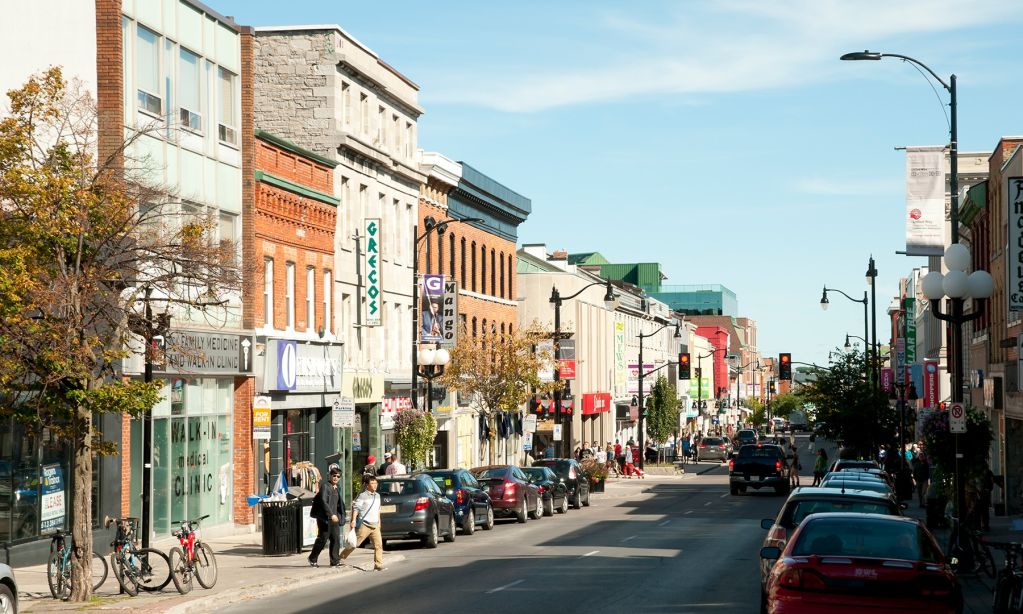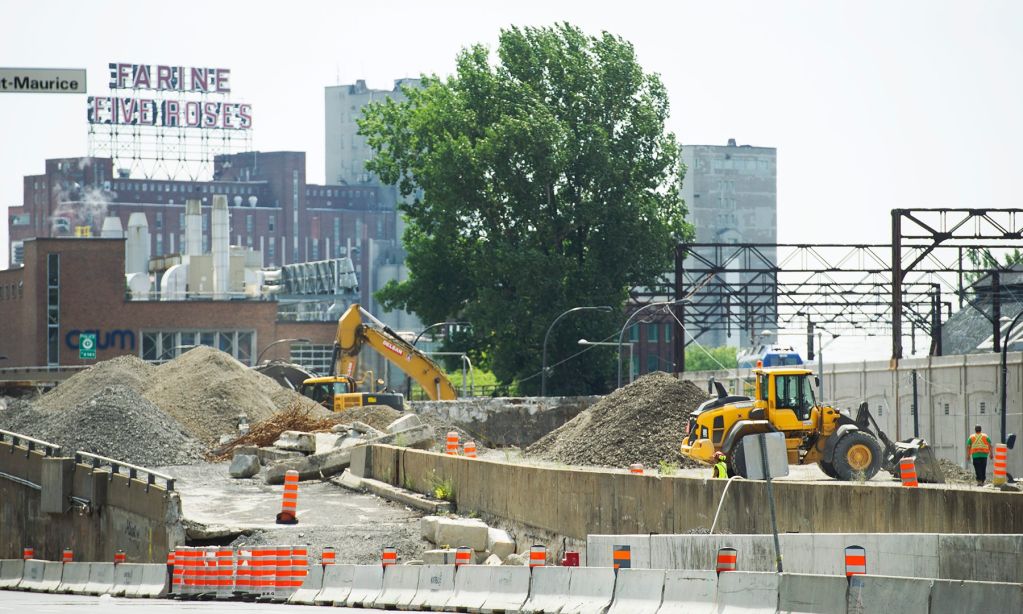
Hamilton is seriously curtailing renovictions
The historically working class “Steel City” is set to enact a new type of regulation around “renovictions”—that is, the common landlord tactic of using major renovations as a pretext to evict long-term tenants and dramatically raise the rent.
If enacted, Hamilton’s law would require landlords to apply for a permit to “renovict” tenants, and a board would decide whether or not eviction is a justifiable course of action.
The policy would be the first of its kind in Ontario and it would represent the most serious attempt yet at protecting tenants from predatory evictions. Similar legislation in New Westminster, B.C., completely eliminated the practice of renovictions in that city.

British Columbia is restricting short-term rentals
As of May 2024, B.C. residents trying to rent out property on short-term rental platforms like Airbnb or VRBO will only be able to do so for their primary residence or one secondary residence.
By enacting this rule, the provincial government hopes to clamp down on the phenomenon of investors buying up housing to convert it into permanent unregulated hotels, thereby removing that housing from the market.

Edmonton is rezoning the entire city
As of January 1, 2024, the City of Edmonton has enacted a complete restructuring of its zoning code.
Like nearly all North American cities, Edmonton’s urban design is starkly divided between commercial and residential zones, with residential zones mostly being mandated exclusively for single-family homes.
The new zoning code creates mixed-use zoning in certain areas—think a shopping street with ground floor storefronts and apartments upstairs—and legalizes densification across the entire city. All residential lots are now allowed to build up to three-story apartment buildings or row-houses.
Such measures are essential for reducing car dependency, urban sprawl, and carbon emissions in cities—and Edmonton has enacted one of the more ambitious zoning reform programs in the country.

Montreal is pedestrianizing the entire Old Montreal neighbourhood
As of 2024, the City of Montreal is planning on converting the entire Old Montreal neighbourhood into a pedestrian-first zone, similar to comparable old cities in European cities.
While car traffic will still be allowed in the neighborhood, the space for cars will be severely curtailed in order to open the streets in the busy tourist zone to foot traffic.
The city is framing the move, like other pedestrianization initiatives, as part of a broad emissions reduction strategy that focuses on reducing car use in favour of walking and cycling, as well as public transportation.

Kingston has boldly transformed… the parking code
In most North American cities, zoning codes require any new construction to incorporate minimum amounts of parking.
These parking minimums might mean a certain number of spots per square meter of a grocery store, or per bedroom in an apartment, and so on. These requirements are explicitly designed to build too much parking—because overbuilding parking means it's easier to find spots.
The effect is an endless construction of strip-mall suburbia, where massive parking lots increase the distance between places and make cars the only convenient way of getting around, at the expense of active and public transportation.
Kingston has abolished all parking minimums for non-residential land uses and replaced them with parking maximums for both residential and commercial buildings in an explicit attempt to waste less land on parking lots.
It also enacted minimum bicycle parking requirements for new apartments and secure bicycle parking—including for cargo bikes—in areas around the city.

B.C. is legalizing missing-middle housing across the province
In most North American cities and towns, zoning codes ban the construction of any type of housing other than detached single-family homes—a phenomenon that contributes to car dependency and urban sprawl, and limits the construction of new infill housing in already built areas.
The province passed a series of new laws in fall 2023 to legalize the construction of denser housing across the province.
Once these changes come into effect, all lots currently zoned for exclusively single-family homes will be allowed to build up to six units on the lot, as well as laneway homes. Another law simplifies the approval process for building tall towers near rapid transit.

Montreal is tearing down another urban highway
The City of Montreal has reached a deal with the federal government to demolish a significant section of the Bonaventure Expressway, a waterfront urban highway that connects the city’s downtown with a bridge to the suburbs south of the island.
It will be replacing the highway with an urban boulevard slightly inland and transforming the waterfront into a linear park with a pedestrian/bicycle corridor.
The city had already torn down another section of the expressway in 2016, which it replaced with a boulevard and park.
Toronto is reversing transit cuts
Newly elected Toronto Mayor Olivia Chow has reversed previous service cuts to the Toronto Transit Authority, which will allow the transit agency to maintain service levels.
When transit agencies cut service, it can result in what urban planners call a “death spiral.” Infrequent buses or less routes mean more people decide to drive (or bike, or walk), which reduces revenue for the transit agency, which leads to further service cuts, which leads to less people riding, and so on.







